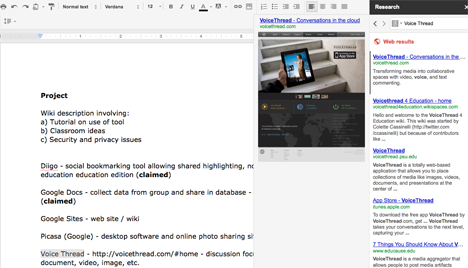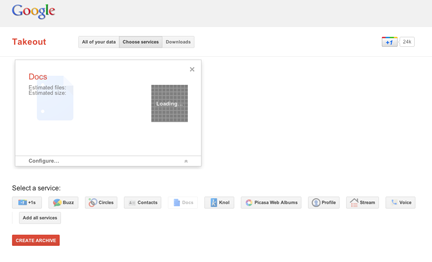I just purchased a Google Nexus 7. I bought the 8 gig version because my prepurchase investigations had convinced me that it would be all I would require for my personal needs and because I have multiple devices in the same “space”. The following image displays several of my options (iPad, Nexus 7, Galaxy Nexus). I do not really need all of these devices. Perhaps owning all of this stuff is a bad thing, but I write about the applications of technology and I prefer to really use the devices and services I write about rather than parrot what others say. I have been an Apple advocate since the beginning. However I also believe healthy competition is key to innovation and fair treatment of consumers. I wanted to understand for myself if a $200 device can get the job done even if I can afford the iPad. I need to spend more time and I realize it depends on what “the job” is, but so far the Nexus 7 satisfies my needs for browsing, email, reading, etc. Early on the knock on the iPad was that it was a consumption device. This was a short sighted view, but if most of your activity is about consumption or if you have another device for production, my first reaction is that a $200 device works.
One of the activities I tried on the iPad, the Nexus 7 and the Galaxy Nexus was reading a Kindle book. Ironically given the focus of this post, the book was Age of the Platform. It is an interesting read examining company strategies (Amazon, Apple, Facebook and Google) to compete for our attention and dollars. My take on the book (after a couple of chapters) is that it explores the distinctions between and interdependencies among hardware, platform, and content. Perhaps it might be claimed that Apple has created a great platform to sell hardware. Google has explored hardware to encourage various companies to develop similar hardware products and encourage access to the Google platform. Amazon offers content, needs a platform to do so, and puts just enough into hardware to keep customer options open. Facebook is pretty much all platform.
More and more as a content creator, I am a fan of companies that prioritize the platform without attempting to control it. I do not want a given company to control hardware, content, and platform. We are finishing a book (actually a book and other stuff) and while creating a content product for the Apple platform (an ibook) would have been a relatively easy translation of our content, such a product would leave out those with other hardware. This is why I am pleased to have had the experience with the Nexus 7 that I have had. I see tablets as a big deal in education, but I hope the Amazon/Google model of flexibility in the hardware that can be used to experience content (Kindle reader) will emerge as the hardware, platform, corporate strategy of choice.
I have nothing to say about Facebook.
![]()





You must be logged in to post a comment.